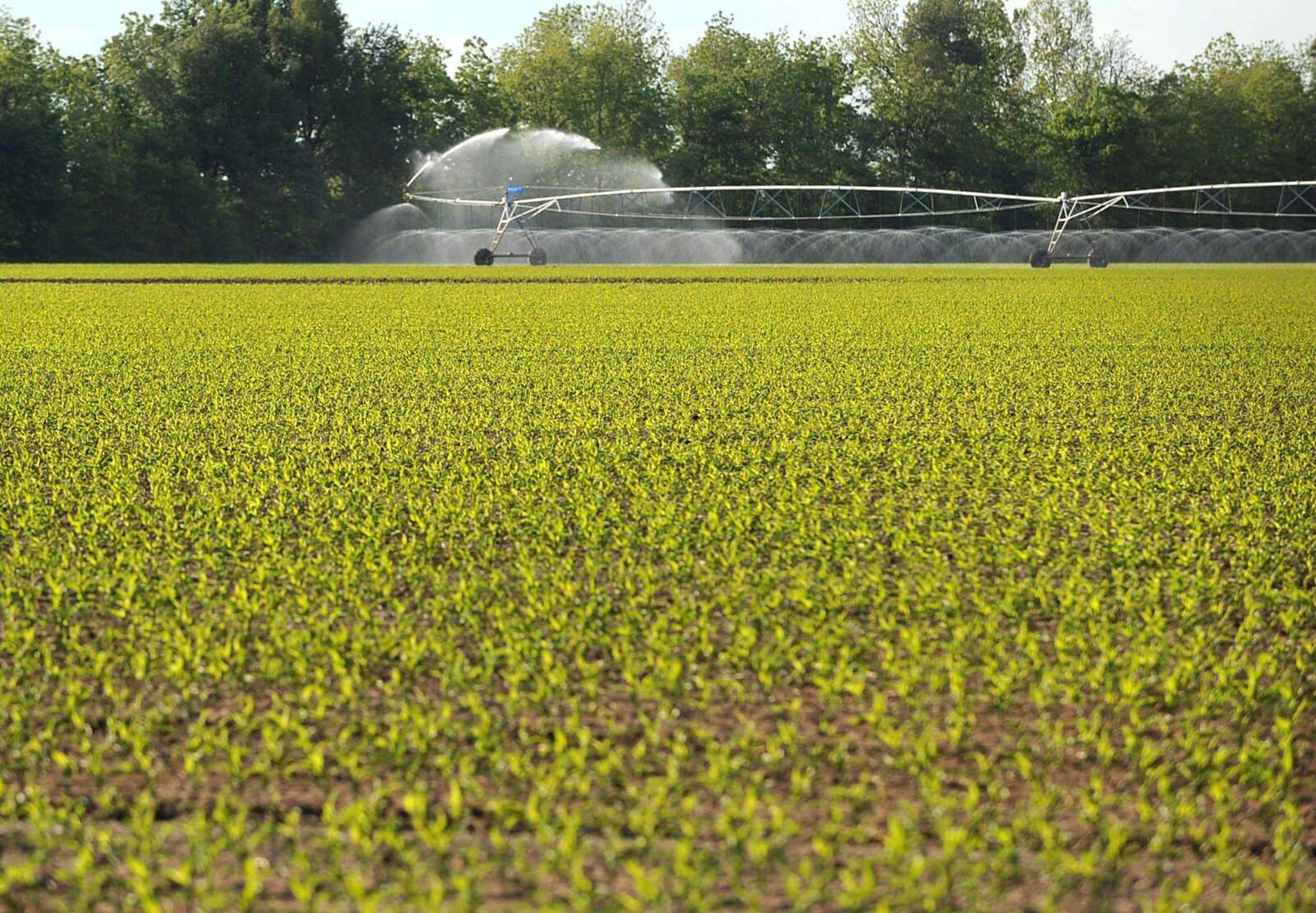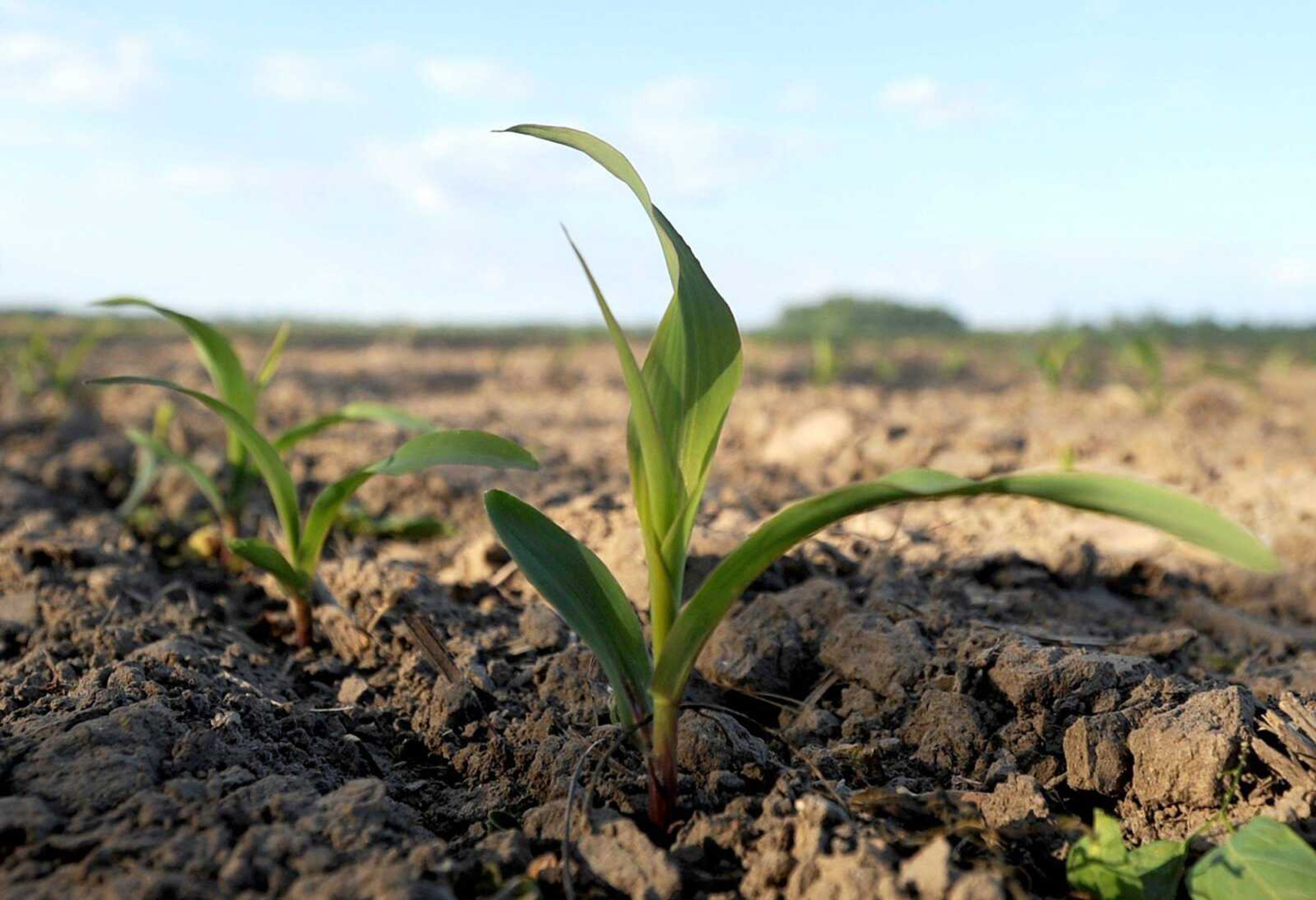Spring planting ahead of schedule
Thanks to a warmer and dryer than usual spring, nearly all of Southeast Missouri's corn is planted weeks ahead of schedule. Ninety-three percent of corn in Southeast Missouri has been planted as of Sunday, compared to 42 percent on this date last year, according to the USDA's National Agricultural Statistics Service...
Thanks to a warmer and dryer than usual spring, nearly all of Southeast Missouri's corn is planted weeks ahead of schedule.
Ninety-three percent of corn in Southeast Missouri has been planted as of Sunday, compared to 42 percent on this date last year, according to the USDA's National Agricultural Statistics Service.
"We're so far ahead of where we've been the last several years, it's made it seem like it's extraordinarily early," said Mike Geske of Matthews, Mo., who serves on the National Corn Growers Association board of directors.
In Southeast Missouri, 63 percent of corn has already emerged, compared to just 10 percent at this time last year, according to NASS.
John Peters, whose farm is off Route K outside Cape Girardeau, said he is about two weeks ahead of schedule on his corn planting. His corn is already coming up.
"The dry weather makes everything go faster. If everything's ahead of schedule, then you can start in on the next crop," he said.
This year's dry spring is a welcome change from last year's storms and flooding. From March to May 2011, Cape Girardeau received 32 inches of rain keeping farmers out of the fields and in many cases washing away corn that was planted early.
"Last year, we were running right on schedule and then it started raining a lot. We had to come in after the rain and finish planting. The year before that, April was real wet and a lot of our corn got planted in May," said Anthony Ohmes, regional agronomy specialist with the University of Missouri Extension Center.

This April, so far, Cape Girardeau received just 1.19 inches of rain, according to the National Weather Service, compared to 20.5 inches of rain in April 2011. Normal rainfall for the month of April in Cape Girardeau is about three inches.
While the dry weather allowed farmers to plant without interruptions, now it's starting to cause some problems.
Ohmes said many areas of Southeast Missouri haven't had a significant rainfall since the beginning of March.
As of Sunday, 44 percent of Southeast Missouri's soil had either short or very short moisture supply, according to NASS.
Once planting is complete, rain is needed to activate the herbicides and fertilizers applied to the fields, he said.
"That's a lot of money sitting on the ground if it doesn't get rainfall to get it into the ground," Ohmes said.
Over time herbicides and fertilizers will break down if they're not activated.
"We may have a few weed issues that will make it more costly," Geske said.
While farmers normally don't start irrigating until June, in many areas of the Bootheel, irrigation has already begun, he said.
Rain is also critical to the development of the plant's root systems. "Right now, corn is not showing any signs of stress, but we do need rain soon," Ohmes said.
The dry weather has already damaged some Southeast Missouri wheat crops.
Wheat plants like cooler and drier weather going into their final stages, but in some sandier soils the lack of moisture is resulting in shorter stems and stressed plants.
About 95 percent of the area's wheat is already headed, compared with just 16 percent at this time last year. Wheat development across the state is about a month ahead of normal for this time of year, NASS reports.
The lack of moisture in the soil is also keeping some farmers from moving on to their soybean planting, Ohmes said.
"If we can catch some rain, we'll probably have some beans planted later this week," he said.
Ohmes and Geske say farmers they've worked with are cautiously optimistic about this growing season.
"Everybody's positive, and yet a little apprehensive because the weather is so unusual," Geske said. "Everybody's worried about what this is telling us about the summer we're going to have."
After a mild fall and winter, corn prices are stronger than they have been due to increasing demand from China, Geske said.
On Monday, corn was at $6.12 per bushel, according to the Chicago Board of Trade. That's down about 18 percent from a year ago, but higher than this winter when prices were around $5.75 per bushel.
Wheat is down 24 percent from a year ago, at $6.32 per bushel Monday. Soybeans are up nearly 4 percent at $13.41 per bushel.
mmiller@semissourian.com
388-3646
Connect with the Southeast Missourian Newsroom:
For corrections to this story or other insights for the editor, click here. To submit a letter to the editor, click here. To learn about the Southeast Missourian’s AI Policy, click here.










